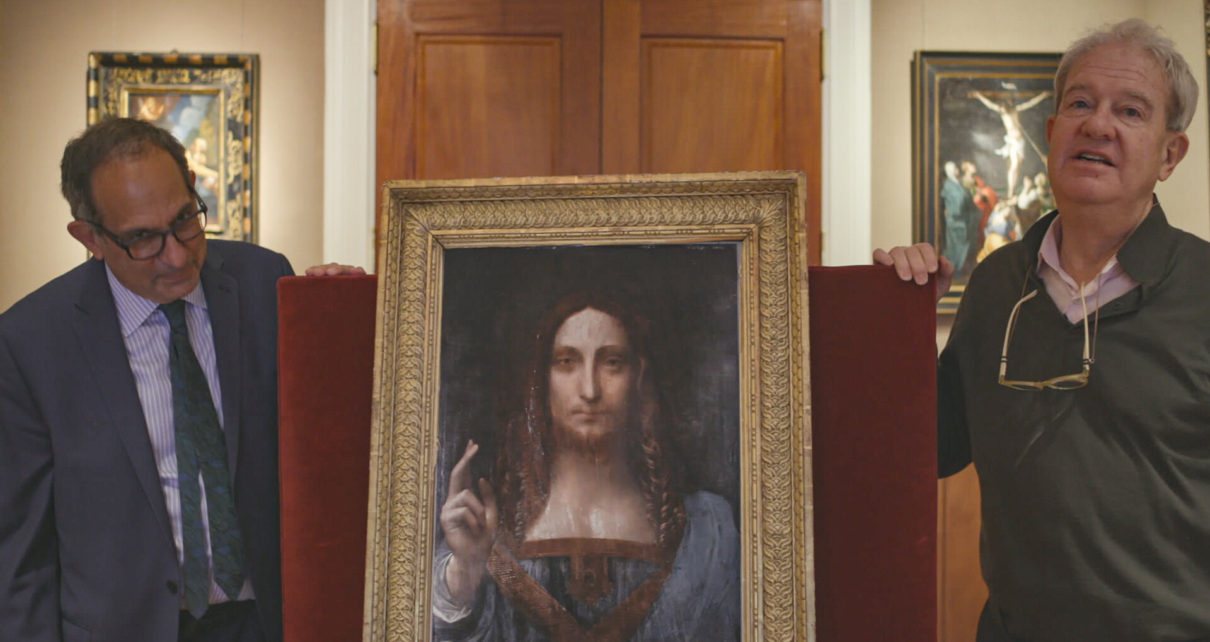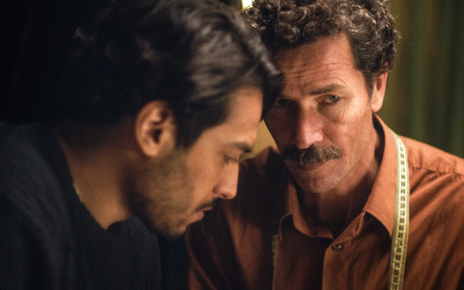“One art, please.” The request of Futurama’s Dr. Zoidberg rang throughout my ears while watching a painting sell for $450 M. That’s FOUR-HUNDRED-AND-FIFTY MILLION DOLLARS for exactly one (1) piece of art, that -incidentally- may or may not be authentic. For those of us who don’t have 10-figure incomes, Salvator Mundi might not ring a bell. Personally, I confused the painting for utility infielder in the White Sox chain.
Far from a good-glove-no-bat shortstop, however, Salvator Mundi is actually a painting and a very valuable painting at that because it may (or may not) have been painted by Leonardo da Vinci. When Alexander Parrish and Robert Simon bought the painting in New Orleans in 2005 for $1,175, nobody alive in the world at the time thought it might have been painted by Leonardo da Vinci. I’m no poker player, but even I could have got a grand or two more for a potential da Vinci.
The first question is: Is it a Leonardo? And the answer is: After the price tag exceeds $80 M, it doesn’t matter. It is what we say it is. This film gives an all-too-brief lesson in the politics of information. Anybody familiar with the Trump presidency understands this lesson all too well — after a time, it doesn’t matter what’s right if enough people believe what’s wrong and are willing to act on that belief.
However, when the new owners examined it and took it to restoration and da Vinci experts, the legend grew. And this film is the story of The Lost Leonardo. And if it wasn’t clear from the painting’s slight mark-up over the decade that followed, this tale is much more about economics than art. The next question is: suppose you own a painting by da Vinci … what do you do with it?
In my head, I have a picture of some Bond villain oligarch in a living room the size of the Superdome filled to the brim with countless priceless art treasures. HA! Is that image outdated. The only thing oligarchs do with priceless art right now is find a price for it – especially some ugly-ass Renaissance graffiti where Jesus is giving you the fingers.
Do you know what a freeport is? I did not. It’s that place in Tenet where John David Washington fights with himself. Basically, a freeport is a super-secure airport storage facility where gazillionaires keep things from being taxed. It allows them to b e liquid when banks fail – you see, even if you lose all your money on, say, Trump steaks, a da Vinci is still a da Vinci. A ton of notable artwork from hundreds of years of collected human history is currently not in museums but at airports being used as collateral. And that’s where it is going to stay until Christie’s auction house decides it’s a good time for the painting to travel to another freeport.
e liquid when banks fail – you see, even if you lose all your money on, say, Trump steaks, a da Vinci is still a da Vinci. A ton of notable artwork from hundreds of years of collected human history is currently not in museums but at airports being used as collateral. And that’s where it is going to stay until Christie’s auction house decides it’s a good time for the painting to travel to another freeport.
But I digress.
Like any good documentary, The Last Leonardo is just full of fascinating facts and semi-angry talking heads. The question becomes, well, what facts did you want to know? The only person we really get to know in the film is Dianne Dwyer Modestini, the expert who restored the piece. Critics have had a field day with calling her the true artist of Salvator Mundi. Did the restorer think it was a da Vinci? Umm, yes? Maybe? The consensus seems to be that it is most definitely a painting. And Leonardo DiCaprio has seen it! On that we can all agree. I would like to have delved more into the authenticity angle – even if it doesn’t matter to the world, it matters a little to me. I don’t have $450 M, nor will I ever have $450 M, so I’d like to know if this is an unwitting con. The economics lesson is fun, but not nearly as important to me. And, let’s face it … the subject matter as is doesn’t exactly lend itself to a diverse audience, so I’m withdrawing the big applause in favor of a “well made.” The question now: is the documentary authentic?
Every art piece I own, preach, or hark
Is currently concealed in the dark
It’s not that I’m lazy
Or even half-crazy
I’m simply a future oligarch
Rated PG-13, 96 Minutes
Director: Andreas Koefoed
Writer: Andreas Dalsgaard, Christian Kirk Muff, Andreas Koefoed (how many people does it take to write a documentary?)
Genre: Scam?
Type of being most likely to enjoy this film: Billionaires
Type of being least likely to enjoy this film: Those with little patience for the whims of the wealthy



